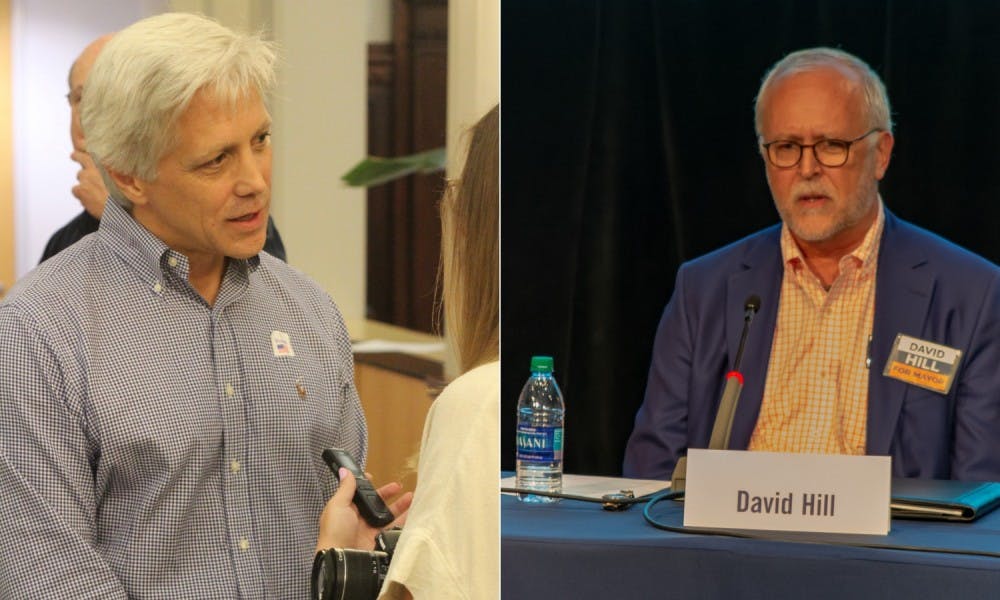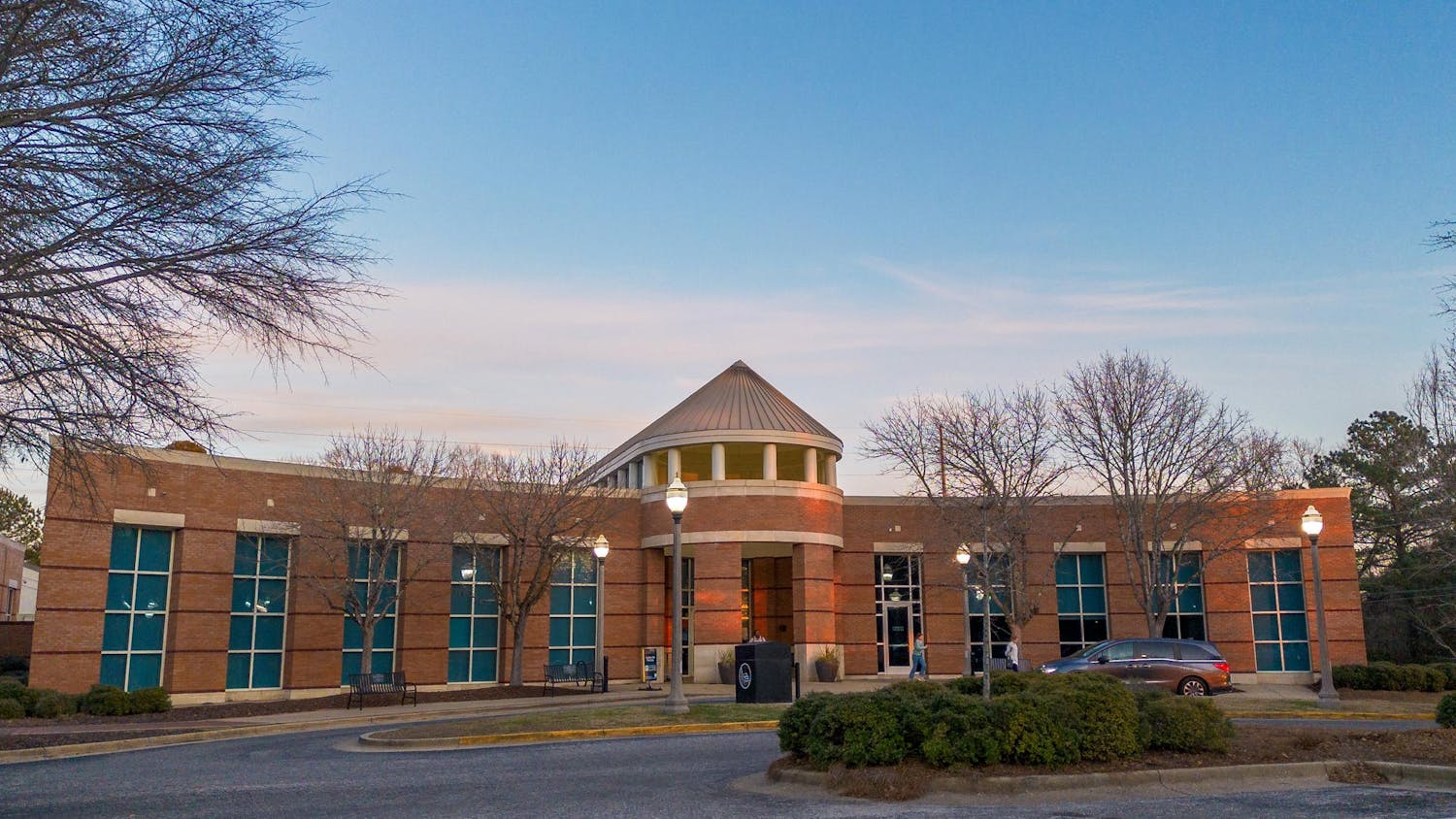There’s less than a week left ahead of the Oct. 9 runoff election. Some members of the City Council have already been seated, but several others have yet to be selected. And voters will also make a final decision on who they want to be Auburn’s next mayor.
The Oct. 9 runoff election is unquestionably a significant decision-point in Auburn’s history.
The city’s 20-year mayor, Bill Ham, is stepping down.
And even though Auburn has a “weak mayor” — a system in which the city manager and City Council hold more administrative and executive power than the mayor — who voters select next week will undoubtedly set the tone for Auburn’s government for at least the next four years.
That decision comes at a time when Auburn is experiencing an unprecedented era of growth. Over the last 5 years, Auburn’s population has grown by an estimated 20 percent since 2010 and has more than doubled since 1990, according to U.S. Census Bureau data.
The issue of how to deal with that growth has been front and center throughout the months of this election, and the two candidates have divergent views on how city government should handle it.
“I think we’re cramming too many students into too small an area,” said mayoral candidate David Hill, referring to the large student-centered apartment complexes being built in the downtown area. “If you take the individual buildings, even as ugly as they are, if they were set back further, if they were maybe located not all just on Gay, Glenn and North College, it might work.”
Even if the developments were placed in a better location — Hill suggested between Donahue Drive and North College Street — he said it’s still possible the city is still growing too fast and elected officials aren’t doing enough to moderate the growth.
But Anders, a current member of the City Council, said it’s not possible to stop a city like Auburn from growing.
“Auburn’s going to continue to grow because we’re going to continue to be an outstanding city,” Anders said in an interview with The Plainsman. “Auburn University is not going anywhere. That attracts people in and of itself, but our city now has stepped up alongside our University over the last couple of generations because of great leadership, and now our city is a destination place to live.”
The bigger issue to Anders is that of older student apartments being converted into multi-family apartments for non-student residents who use city services to a greater degree than students.
“The worst thing that can happen is Auburn grows too fast, and we can’t provide services for the people that come to town and everybody becomes frustrated,” Anders said.
Anders said the city needs to formulate a strategy for student housing going forward so that older complexes are refurbished or redeveloped instead of converted into non-student residences.
“We owe it to this community to understand that, because the backfill of those units is not a student who’s putting on a backpack and riding a bike to class and doesn’t use a lot of city services,” Anders said. “It becomes people who are going to our schools or riding our school buses, playing on our ball fields, and they use city services to a greater length.”
As a sitting Council member, Anders is widely viewed as a more “establishment” pick for mayor. He served his most recent term as mayor pro tempore, and Ham endorsed him to be his successor earlier this year. But with his record on the Council and in city government, Anders has said he’s a more qualified pick for the Council.
Hill, a former public policy professor, has served on the planning and zoning commission in College Station, Texas. He said that experience and his experience as a consultant for local governments, school districts and major companies make him qualified.
Hill said the city needs new, outsider leadership.
“We moved back nine years ago, and I immediately began to see things that troubled me in terms of just lack of openness and transparency in our city government,” Hill said, “kind of a just a headlong rush into any willy-nilly runaway growth and development, which to me was not advisable, and I didn’t see anybody standing up to the insider establishment that seems behind all this.”
The city’s government could be more open, transparent and accessible through an updated website, live-streaming of City Council and Planning Commission meetings and an app for the city that allows residents and students to interact with the city’s government.
The city’s heigh limits and restrictions on student housing in the downtown area have caused major disagreements at City Council meetings for years. Earlier this year, the Council approved a 75-foot height restriction for most of downtown and a 65-foot height limit in parts of downtown affecting College Street and Magnolia Avenue.
Anders supported the 75-foot height limit. He said he voted for it because the proposal came after plans were announced for a Southern Living Hotel that would take the place of Quixotes, the University Inn and the Baptist Student Union on South College Street. The developers asked for an extra ten feet to make the development possible. The surrounding discussions also enacted a downtown Design Review Team, which Anders supported.
Aug. 28 election results
But Anders said he would not support any more changes to the height ordinance, particularly proposals that would raise the limit further.
“If future generations want to raise it, that will be up to them,” Anders said. “But if I’m the mayor, we will not take that up, by in large.”
The Design Review Team has no approval authority and can only make recommendations to developers and the City Council. Anders said the state’s Constitution doesn’t allow for a Design Review Team that would have approval authority, but Hill says the City should change its ordinances to give the City Council more authority to approve the designs of new developments.
He said he favors smaller developments like the recently built three-story cottages on East Samford Avenue near Gay Street.
“To me, those are more conducive to what we think of as Auburn as a small town, The Loveliest Village on The Plains, than these giant, big-box, undistinguished architectural totems,” Hill said.
Anders agreed that he doesn’t like most of the recent big student-housing developments in the downtown area.
“I was not for the large-scale student projects downtown,” Anders said. “I was not.”
But he also said there is only so much a city can do without violating developers’ property rights.
“Those have to be honored,” Anders said. “The city can do the best we can to plan for the future and try to understand what trends are coming down the pike and that they will eventually make it to Auburn and try to plan accordingly.”
The runoff election will be held on Oct. 9. If you’re registered to vote in Auburn, you can vote in the runoff even if you didn’t vote in the Aug. 28 general election.
There will also be elections for four City Council members in Ward 2, Ward 4, Ward 5, and Ward 6.
The Auburn Plainsman will have live election coverage Tuesday, Oct. 9, on ThePlainsman.com.
Mikayla Burns, lifestyle editor, contributed to the production of the two videos in this piece.
Do you like this story? The Plainsman doesn't accept money from tuition or student fees, and we don't charge a subscription fee. But you can donate to support The Plainsman.

Chip Brownlee, senior in journalism and political science, is the editor-in-chief of The Auburn Plainsman.





